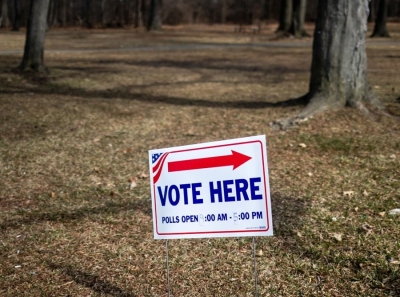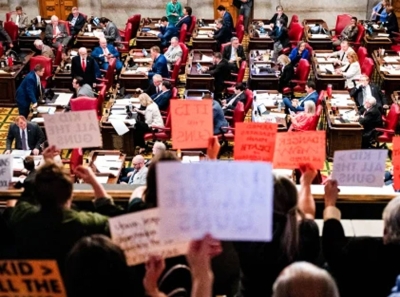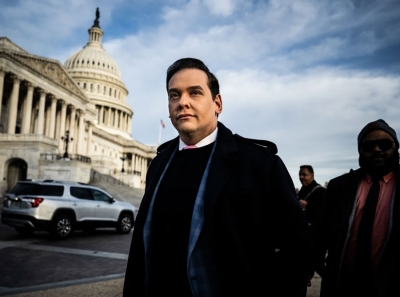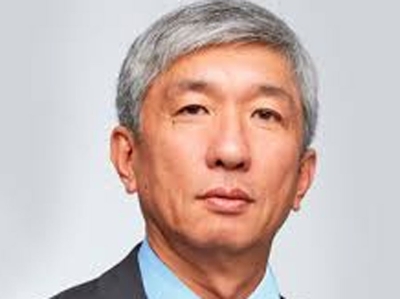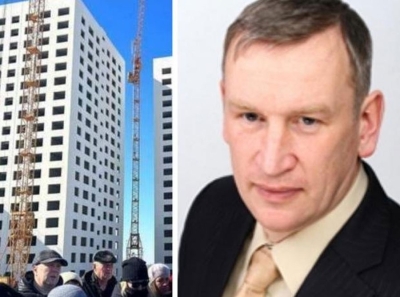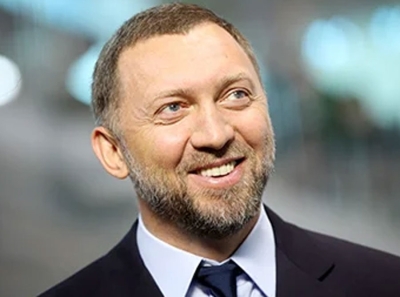In this week’s episode, produced in collaboration with The Associated Press, secret audio recordings expose a legal playbook used by The Church of Jesus Christ of Latter-day Saints that keeps evidence of sex abuse out of reach of authorities.
AP reporters Michael Rezendes and Jason Dearen investigate the case of a former Mormon bishop, John Goodrich, who was accused of sexually abusing his daughter Chelsea.
The story opens in Hailey, Idaho, with Chelsea Goodrich and her mother, Lorraine, locked in discussions with the director of the Mormon church’s risk management division, Paul Rytting. One of Rytting’s jobs is to protect the church from legal liability, including sexual abuse lawsuits.
The women had come to the meeting with one clear request: Would the church allow a local Idaho bishop, which in the Mormon church is akin to a Catholic priest, to testify at John Goodrich’s trial? Bishop Michael Miller, who accompanied Rytting to the meeting, had heard John Goodrich’s confession before he was arrested on charges of lewd behavior with a minor.
Audio recordings of the meeting and others show how Rytting, despite expressing concern for what he called John Goodrich’s “significant sexual transgression,” would discourage Miller from testifying, citing an Idaho law that exempts clergy from having to divulge information about child sex abuse that is gleaned in a confession.
In the episode’s final segment, Rezendes and Dearen sit down with guest host Michael Montgomery to discuss why states across the country exempt clergy from mandatory reporting laws that are meant to protect children from abuse.
Photos

Dig Deeper
Read: Recordings show how the Mormon church protects itself from child sex abuse claims (Associated Press)
Read: Arizona court upholds clergy privilege in child abuse case (Associated Press)
Read: Push to require clergy to report abuse stalls in Mormon Utah (Associated Press)
Read: Seven years of sex abuse: How Mormon officials let it happen (Associated Press)
Credits

Host and producer: Michael Montgomery | Reporters: Michael Rezendes and Jason Dearen | Editor: Brett Myers | Additional editing: Tom Berman | Fact checkers: Nikki Frick and Rosemarie Ho | Production managers: Steven Rascón and Zulema Cobb | Sound design: Jim Briggs and Fernando Arruda | Digital producer: Nikki Frick | Interim executive producers: Brett Myers and Taki Telonidis
Produced in collaboration with the Associated Press. Special thanks to Tom Berman, Jaime Holguin, Ron Nixon, Jeannie Ohm and Jessie Wardarski.
Support for Reveal is provided by the Reva and David Logan Foundation, the John D. and Catherine T. MacArthur Foundation, the Jonathan Logan Family Foundation, the Ford Foundation, the Hellman Foundation, the Robert Wood Johnson Foundation, and the Park Foundation.
Transcript
Reveal transcripts are produced by a third-party transcription service and may contain errors. Please be aware that the official record for Reveal’s radio stories is the audio.
| Michael Montgom…: | From The Center for Investigative Reporting and PRX, this is Reveal. I’m Michael Montgomery, in this week for Al Letson. The Temple of the Church of Jesus Christ of Latter-day Saints in Haley, Idaho is a long red brick building with sharp sloping roofs. |
| Speaker 2: | Our Father in heaven, we’re indeed grateful for the blessings that thou bestows upon us. |
| Michael Montgom…: | In a large classroom, a group of Mormon Church members are gathered around a conference table as a local pastor, known as a bishop, is saying a prayer. It’s early March 2017 and the snow on the surrounding mountains is still thick. |
| Speaker 2: | May I ask you to bless this family and we say these things in the name of Jesus Christ. Amen. |
| Speaker 3: | Amen. Thanks, Bishop. |
| Michael Montgom…: | After the prayer, a man in a dark suit and tie takes charge. He’s just flown in from church headquarters in Salt Lake City. |
| Paul Rytting: | My name is Paul Rytting. |
| Michael Montgom…: | Paul Rytting is an attorney who heads the Mormon Church’s risk management division. One of his jobs protect the church from legal liability including sexual abuse lawsuits. Two women are also at the table. Lorraine Goodrich and her daughter Chelsea. Rytting tells them he understands the purpose of the meeting, to talk about Chelsea’s father, John Goodrich. |
| Paul Rytting: | I’m here because Chelsea sent an email sharing information that’s tragic and horrendous. And we felt like we needed to look into it. |
| Michael Montgom…: | By this point, John Goodrich has already given a religious confession, and the church has excommunicated him for what Rytting calls significant sexual transgression against Chelsea when she was a child. Goodrich, who’s not in the room, is also facing criminal charges of lewd conduct with a child. That’s why Chelsea and Lorraine are here. They’re asking the church to cooperate with authorities and allow the bishop who heard Goodrich’s confession to testify in a court of law. |
| As they talk, Lorraine and Chelsea are trying to figure out if they can trust Rytting and count on the church for help. | |
| Paul Rytting: | Are we recording this by chance? |
| Speaker 3: | Yeah. Do you have a problem with that? |
| Paul Rytting: | Well, I think that I don’t have a problem. I hope that we can trust each other a little bit more than… |
| Speaker 3: | I would love that. But I have to tell you this experience of the past year of working with attorneys is it that anything that wasn’t recorded did not happen or wasn’t said. So I’ve learned to start doing that. I would love to say I have complete trust in you as a priest or leader or an attorney from the church, but I have some really big trust issues. |
| Michael Montgom…: | Rytting tries to reassure Chelsea and Lorraine that the church has long condemned sexual abuse. |
| Paul Rytting: | We decry it. |
| Speaker 3: | It’s evil. |
| Paul Rytting: | Any man who’s guilty of it or any woman who’s guilty of it should be disciplined and dealt with severely in… |
| Michael Montgom…: | But to allow clergy to reveal details of a religious confession, even in a case like this one, Rytting says that’s where the church draws a line. |
| Paul Rytting: | What he shares at the criminal hearing is something that Bishop Miller needs to be very careful about. He’s bound by priest penitent privilege to say, “I can’t answer that.” |
| Michael Montgom…: | The Mormon Church largely forbids clergy from sharing details of a religious confession with law enforcement or in a court of law. That doctrine is protected by laws in Idaho and many other states. And in some cases it’s allowed sexual predators to escape justice. |
| The story you’re about to hear is based on hours of audio recordings, for meetings like this one. Recordings that the Mormon Church has tried to suppress. But Chelsea Goodrich and her mother Lorraine are determined to challenge the church’s secrecy. The recordings were obtained by two investigative reporters from the Associated Press, Mike Rezendes and Jason Dearen. And before we get started, a warning that some of the audio in this story is disturbing with descriptions that may be triggering, especially for survivors of abuse, and it may not be appropriate for young listeners. This investigation provides a unique window into a system the church uses to keep allegations of child sex abuse secret and out of reach of police and prosecutors. AP reporter Jason Dearen begins our story in Salt Lake City. | |
| Jason Dearen: | Twice each year, the Church of Jesus Christ of Latter Day Saints holds its general conference. People from around the globe gather in a massive 21,000 seat auditorium, serenaded by the Tabernacle Choir. In October 2000, one of the speakers at that gathering was David B. Haight. |
| David B. Haight: | With all of you here this morning, I am sure you would join with me in saying, what a marvelous time to be alive and what a marvelous time to be a member of this church. |
| Jason Dearen: | Haight was 94 at the time and a top church leader. He spoke about the importance of family, that life itself was a great chain linking families with their ancestors and future generations. And he chose to celebrate one family in particular, the Goodrichs. |
| David B. Haight: | Last summer, we met some people who from Mountain Home, Idaho, the Goodrich family. And Sister Goodrich come by to see us and to say hello and brought her daughter Chelsea with her. |
| Jason Dearen: | Chelsea Goodrich was 15 at the time and deeply devoted to the church, so was the rest of the family. Her mother was one of the local leaders in the church’s women’s organization and her dad, a successful dentist, was a bishop. |
| Chelsea Goodric…: | Essentially, he was holding our family up as a standard model family for what the church should look to and be like. And he spoke about the fact that I had memorized the proclamation to the world on the family, stating basically the role of the family and its role in society. |
| David B. Haight: | I said, tell me, now you learned that when you were 12 years old, you’re now 15 and pretty soon you’ll start dating. Tell me about it. What has it done for you? And Chelsea has said, as I associate with other people and when I start dating, this will give a yardstick for me, which will help guide me and it will give me the strength that I would need. |
| Jason Dearen: | The Mormon church encourages teenagers to date in order to develop lasting friendships and eventually find an eternal companion. It’s about reinforcing family as the fundamental unit of society, but Chelsea’s family wasn’t the model it was held up to be, and she found the idea of dating frightening. |
| Chelsea Goodric…: | Looking back, there was such a fear and a panic. |
| Jason Dearen: | When she became an adult, those anxieties didn’t go away. They grew stronger. |
| Chelsea Goodric…: | Instead of wanting to have a relationship, I just remember feeling like terror and confusion and kind of disgusted like all at once. |
| Jason Dearen: | She experienced bouts of depression and panic attacks. |
| Chelsea Goodric…: | That were so severe I had to go to the emergency room more than once. |
| Jason Dearen: | All connected to her failure to build a lasting relationship and create a family. That key tenet, a Mormon belief she’d heard about since she was a child. |
| Chelsea Goodric…: | Everything was just such a struggle. |
| Jason Dearen: | In 2015, Chelsea was in graduate school studying psychology. She was almost 30 and starting to take a deeper inventory of her childhood, hoping to understand the source for all these feelings. There were lots of good memories growing up in a small town with two brothers and a sister, but she also identified memories of her father that in hindsight were troubling. |
| Chelsea Goodric…: | My dad had come to me at age nine, and he had taken me aside into the family library office area, shut the door, and he started sobbing and he said, “I’m so, so sorry, but when we play in the swimming pool, when we swim in the swimming pool together, I’ve been doing really bad things to you, but I’m not going to do it anymore.” |
| Jason Dearen: | Chelsea says, John assured her that he had repented. |
| Chelsea Goodric…: | And then he said, “And don’t tell mom because she would just be upset and sad and she wouldn’t understand. It would just hurt her.” |
| Jason Dearen: | She recalled other times when her father would slip into her bed at their home, and once on a school trip to Washington DC she says he would rub her back and shoulders and spoon her. |
| Chelsea Goodric…: | Now, I completely do see what he was doing that was inappropriate and abnormal, but at the time I just thought, okay, whatever he was doing touching me or whatever, he’s sorry and he’s not going to do it again. |
| Jason Dearen: | Chelsea says, John’s erratic behavior left her confused. |
| Chelsea Goodric…: | I had been brainwashed or grooming as they call it in a sense, where I thought, well, whatever this is, even though it feels uncomfortable and I don’t like it, can’t be anything bad or wrong because dad already told me that when he had done something wrong that he had repented. Church talk. |
| Jason Dearen: | One summer morning in 2015 sitting with her mother on their living room couch, Chelsea decides to share some of those unpleasant memories of her father. |
| Lorraine Goodri…: | She was flushed. I remember she was extremely flushed and read and she was like, “Okay, I’m going to need to talk to him about this.” And she told me not long afterwards that she knew from that moment on that her life would never be the same. |
| Jason Dearen: | Over the next month and a half, Lorraine and Chelsea challenged John using their smartphones to record the conversations. They will later share details with Mormon church officials and the police. This is one of those recordings. |
| Lorraine Goodri…: | You and I both know that you did take advantage of Chelsea for your own sexual gratification. You and I both know that you confessed that to her at one point in her youth- |
| John Goodrich: | I didn’t think it was sexual. It was affectionate, I said, if I go any further, I was going to be wrong. |
| Jason Dearen: | John is a little hard to hear and he’s elusive. He says that he didn’t think it was sexual, that he just thought it was affection, and that if he went any further, it was going to be wrong. A warning that this section contains graphic descriptions and it could be triggering to listen to, especially for survivors of abuse. |
| John Goodrich: | I didn’t grind on her. I didn’t do that. I laid in bed and grinned her. I never did that. |
| Lorraine Goodri…: | What about her saying that you did plenty of time. |
| John Goodrich: | I was like kneel by the bed into her shoulders. I didn’t crawl in bed with her. There’s one time that I did, and I just was like realized my feelings were not right and I just ran. It made me sick and I was distraught. There was one time and I was distraught about that. It’s like, no, that’s so stupid. I didn’t even really even touch her, but I was like- |
| Lorraine Goodri…: | Didn’t really touch her? |
| John Goodrich: | No. |
| Lorraine Goodri…: | Because she remembers very vividly your privates against her booty as you were massaging her back and rubbing on her. She’s not lying, John, you are lying to yourself. |
| John Goodrich: | Yes. Yeah, I do remember that. Remember one time, not as far as being aroused. There was one time when I just say, okay, this is stupid. That’s really never going to happen again. |
| Chelsea Goodric…: | There’s multiple recordings of us having conversations with him and with him admitting to surprisingly quite a bit, and my mom always says to this day that it was a miracle that she ever got that first recording. Because she had no idea how to record on her phone, and she looked down and she just was randomly trying to push some things and she realized she was recording. |
| Lorraine Goodri…: | I don’t see how a normal dad would find that arousing, how you could have to fight feelings of attraction. If you move in too close, you’re going to get aroused, and I just felt sick of that and that actually started to happen. I was like, no, this is wrong. I’m not going to do this. I’m not going to do this ever anymore and ever again, and apologized to her. |
| Jason Dearen: | Several weeks after her mother confronts John. Chelsea speaks to him. And a warning, this conversation also contains graphic allegations of abuse. It’s late afternoon. They’re in the family car parked in front of their house. Her brother is in the backseat recording when you can hear John try and grab his phone. |
| John Goodrich: | This is a private conversation’s [inaudible 00:13:04]. |
| Chelsea Goodric…: | Dad [inaudible 00:13:04] going back on things you’ve already admitted to. |
| John Goodrich: | No, it’s just vivid. It says vivid. I’m telling you that [inaudible 00:13:10] great, all that the whole time. |
| Chelsea Goodric…: | He definitely did know he was being recorded. He was aware of that and he tried to stop that, but we just proceeded with recording the conversation. |
| John Goodrich: | I don’t think you need to. |
| Chelsea Goodric…: | I don’t need to what? |
| John Goodrich: | To continue to be recording and just being… It’s just wrong. I already know that you wrote it down. |
| Chelsea Goodric…: | Dad, the only thing that was wrong was was that you did. |
| John Goodrich: | I don’t remember that. |
| Chelsea Goodric…: | You same up to my room many times up to the spiral staircase- |
| John Goodrich: | And I don’t remember that. |
| Chelsea Goodric…: | … and you got in bed with me and your garments and you would snuggle and cuddle and [inaudible 00:13:47]. |
| Jason Dearen: | The family pleads with John to report himself to the police, but he refuses. Instead, he agrees to talk to the Mormon bishop for the area, Mike Miller and give a religious confession. |
| Chelsea Goodric…: | I’m not aware of what the full confession was. I’m aware of some of it because Bishop Miller had a conversation with my mother and with me over the phone, and in that phone conversation, Bishop Miller started telling me some things that I didn’t know or wasn’t fully aware of, and I think when he started to realize that I didn’t remember everything, then he stopped. Because he’s like, “Oh, clergy privilege whatever.” |
| Jason Dearen: | So the bishop was telling you things you hadn’t remembered yet. Your father had confessed more to the bishop than even you knew? |
| Chelsea Goodric…: | Correct. |
| Jason Dearen: | We spoke with Mike Miller recently and he confirmed that he had talked to Chelsea and Lorraine. But he wouldn’t describe what they discussed, nor would he share details about John’s religious confession, citing the clergy penitent privilege. We do know that a short time after John gives that confession, Bishop Miller places a call to the Mormon church’s abuse helpline. |
| Speaker 10: | Hello? Church operator. |
| Jason Dearen: | When we called the number an operator made it clear that the helpline is only for church officials. |
| Speaker 10: | We don’t have an abuse helpline for just general membership. It is just for bishop or presidents. |
| Jason Dearen: | The church’s website says, The goal of the helpline is to support victims and assist church leaders to comply with legal requirements for reporting abuse. What the church doesn’t mention is that the helpline is overseen by its risk management division. In September 2015, weeks after John Goodrich’s religious confession, Lorraine makes one final desperate appeal to her husband. |
| Lorraine Goodri…: | You might want to listen to what I have to say, because you’re going to be blindsided by some things if you don’t really listen. You tell the truth all of it. John, there are things in your past. |
| John Goodrich: | I’m telling the truth. |
| Lorraine Goodri…: | There’s so much in your past. |
| John Goodrich: | There isn’t. |
| Lorraine Goodri…: | Okay, you’re not going to listen, but just hear me out because you’re not going to do it. If you would be honest and then you would get treatment, serious help, our family would stand by you. |
| John Goodrich: | Treatment centers doesn’t even know what to do with me. |
| Jason Dearen: | Their marriage unravels. Lorraine and Chelsea pack up and move about a hundred miles away to Haley, Idaho. John files for divorce. While all this is happening, a church council votes to excommunicate John, but that decision, like the details of his religious confession is kept secret from Lorraine and Chelsea. As soon as the divorce is settled, Lorraine and Chelsea plan to report John for sexual abuse. Then while visiting their old house, they discover something that makes them think they can’t wait. |
| Chelsea Goodric…: | And we saw that little kids swimming suits and floaties were there, and a new cooler with drinks, kid drinks, alcoholic drinks. Anyways, it was pretty clear that John was having people over to swim, including children. |
| Jason Dearen: | Alarm that John may be around children. They go to the police department in Mountain Home, Idaho. They share with investigators the audio recordings they’ve made. |
| Speaker 11: | Before I talk to you, I need you read initial and sign your rights. |
| Jason Dearen: | The next day detectives bring in John for questioning. |
| Speaker 11: | Are you familiar what their accusations are? |
| John Goodrich: | I’m familiar with everything and nothing ever happened. I never ever touched my daughter inappropriately. I think she’s been brainwashed by my ex to say things that didn’t happen, so I’m represented. So that’s it. That’s all I got to say. |
| Jason Dearen: | Later in the interview, John concedes that he may have acted inappropriately but says he never crossed the line. |
| Speaker 11: | You say you never crossed the line. What would you say the line is versus not crossing the line? Because that’s kind of a- |
| John Goodrich: | Never touched her inappropriately, never even thought about it. And it was an accident that was aroused and talked to her about that and it was as the end of story. It was just period. I think that’s happened to everybody, maybe to some degree, every guy in some degree in some way. And you say, but that’s history. Move on. Don’t do that again. |
| Jason Dearen: | John blames everything on Lorraine. He says she’s exaggerating, taking things out of context to squeeze him emotionally and financially. |
| John Goodrich: | My ex is the driving force and I can’t stop her, so that’s why I’m here. |
| Jason Dearen: | After about an hour and a half, the detective leaves and two other officers enter the room. |
| Speaker 12: | And Mr. Goodrich, at this time we’ll be placing you under arrest. Put your hands against the wall, sir. |
| Jason Dearen: | You serious? |
| Speaker 12: | Yes, sir. If you could do me a favor, right there. Just turn around. |
| Chelsea Goodric…: | And to our utter and complete surprise and shock. The next day we got a call saying, “We’ve detained and arrested John.” |
| Jason Dearen: | Authorities charged John with lewd and lascivious conduct with a minor. They also file charges for rape and incest. They’ll quickly drop those. And this is just the beginning of John Goodrich’s legal problems. After reading about his arrest, another woman steps forward. She says John gave her a drug that he uses to sedate his dental patients, and in a recorded call with the woman, John actually admits to drugging her and then having sex. |
| John Goodrich: | It’s fine as heck, but I would never do that again. It’s just wrong. And out of respect for you and just out of principle, it’s wrong, and I’m just mad as hell at myself. |
| Jason Dearen: | After prosecutors file additional criminal charges, John pleads with the accuser, asking her to help him. |
| John Goodrich: | I need all the help I can get. I seriously can’t go be incarcerated. I just can’t do it. My mind can’t handle that. |
| Michael Montgom…: | With John Goodrich facing the possibility of life in prison, Chelsea and Lorraine need the Mormon church’s help to secure any possible conviction. They need church leaders to allow the bishop to reveal details of John’s religious confession. |
| Chelsea Goodric…: | I think I naively thought justice will be served soon. |
| Michael Montgom…: | That’s next on Reveal. |
| From the Center For Investigative Reporting and PRX, this is Reveal. I’m Michael Montgomery sitting in for Al Letson. We’ve just heard from Associated Press reporter, Jason Dearen, about a case of alleged sexual abuse involving former Mormon Bishop, John Goodrich. Goodrich’s daughter, Chelsea, is hoping that a church official who heard her father’s religious confession will testify in court. And at first she says he seemed ready. | |
| Chelsea Goodric…: | Bishop Miller said, “I hope that I’m subpoenaed if there is a case, a criminal case because boy will I talk.” And he said, “I know that I would not want that man anywhere near my own grandchildren.” And I felt that he definitely had the courage at the time to testify about what John had confessed to him. |
| Michael Montgom…: | Mike Miller wouldn’t talk to us about what he told Chelsea, but if he were to testify, it would violate church doctrine, which holds that confessions are sacred and secret. Jason’s reporting partner at the Associated Press is Mike Rezendes. Mike has written extensively on sexual abuse within religious groups. He was on the spotlight team at the Boston Globe that won a Pulitzer Prize for exposing how the Catholic Church covered up sexual abuse by priests. Mike picks up the story with Chelsea Goodrich and her mother, Lorraine, still trying to convince Mormon church officials to cooperate with prosecutors. |
| Lorraine Goodri…: | Hello. |
| Paul Rytting: | Sorry to delay everybody and keep you on hold. |
| Lorraine Goodri…: | No, that’s fine. I think there was some misunderstanding. There is probably my fault. |
| Paul Rytting: | So, Sister Goodrich, how are you? |
| Lorraine Goodri…: | I’m okay. Thank you. Paul. |
| Mike Rezendes: | Chelsea and Lorraine are cordial in their conversations with Paul Rytting. He’s the attorney who directs the church’s risk management division and handles sensitive legal matters. They’re also careful. Lorraine tries to record every word they exchange. |
| Lorraine Goodri…: | I did not trust him and Paul was very concerned about that. There would be other meetings and always referenced us recording. He didn’t feel comfortable with that. |
| Paul Rytting: | I assume that you’re recording this conversation as you recorded the last conversation. |
| Lorraine Goodri…: | Yes, absolutely. |
| Paul Rytting: | And have you shared that with anybody else? |
| Lorraine Goodri…: | We have not. I just felt that it was protective for both of us. Without the recordings, how do we really know who’s telling the truth? |
| Mike Rezendes: | In addition to recording, Lorraine and Chelsea, make sure they have a witness with them. Fellow church member, Eric Alberdi. Eric was part of the Mormon priesthood. He ministered to local families like the Goodrichs, and became a strong ally to Chelsea and Lorraine. |
| Eric Alberdi: | They had been mistreated by a lot of people in the church, out of the church, just very hurt and confused. |
| Mike Rezendes: | Eric shares Chelsea and Lorraine’s concern about the church. He worries, it’s all male. Hierarchy is failing to confront sexual abuse. So like Lorraine, he also records the conversations using his open laptop. |
| Lorraine Goodri…: | I didn’t even know laptops could record. I am not tech-savvy. |
| Eric Alberdi: | Lorraine volunteered that she was recording it. I did not volunteer that I was recording it. |
| Mike Rezendes: | In the meeting, Eric wants to understand whether Rytting is there to protect the interests of Chelsea and Lorraine or the church. And he asks Rytting directly. |
| Eric Alberdi: | Is it fair to say that you’re representing the church corporation as a paid attorney, I assume in this meeting or not? |
| Paul Rytting: | No, I’m a church employee. I have a legal background. My job is with the church’s risk management division. |
| Eric Alberdi: | I would interpret that to say that your concern is your client’s, the church’s balance sheet. Is that accurate? |
| Paul Rytting: | Yeah, I think that I’m here not to protect a balance sheet. I’m here because I have a sense that something very tragic has happened. And I’m here to try to understand exactly what happened. And then determine what should be the response of the church. |
| Mike Rezendes: | These conversations play out over four months, in face-to-face meetings and in phone calls, all of them recorded. And they always circle back to the same question. Will the church allow Bishop Miller to testify at John Goodrich’s criminal trial or will it stop him based on the clergy penitent privilege? |
| Eric Alberdi: | He needs professional help. He also needs ecclesiastical help. |
| Mike Rezendes: | And Eric tells Rytting that Goodrich needs to answer to charges against him in a courtroom. |
| Eric Alberdi: | Which leads me to the big elephant in the room. What would happen- |
| Paul Rytting: | If he breaks the privilege? |
| Eric Alberdi: | Yes. |
| Paul Rytting: | Then Bishop Miller would face a “potential slander defamation lawsuit” because of longstanding constitutional protections. When it comes to what John Goodrich confessed to Bishop Miller, he’s bound by priest penitent privilege to say, I can’t answer that. Unless John Goodrich says, “I don’t care what Miller says at trial about what I confess to him.” |
| Mike Rezendes: | You heard that right. Rytting says, John Goodrich would need to give his permission for Bishop Miller to testify at his own criminal trial. Otherwise, he says, Goodrich could sue the bishop for talking about the confession in public. And Bishop Miller, who’s also in the meeting says, there’s more. |
| Speaker 2: | According to the attorneys if you break privilege and John doesn’t waive it, then the defense attorney’s going to stand up and say, hey, this was obtained illegally, and so any of that evidence plus anything it relates to is kicked out. |
| Mike Rezendes: | This is the point that church officials return to again and again. They say the main impediment to Bishop Miller testifying is the law. Idaho law, like the law in most states, protects the privacy of religious confessions. But what Rytting doesn’t mention is how the Mormon church lobbies to keep laws like that on the books. Nor does he reveal that the church’s own doctrine also restricts clergy from sharing details of a confession. All of this leaves Lorraine stunned. |
| Lorraine Goodri…: | How many people can know the truth and choose to pretend they don’t, and leave others at risk of the same abuse? I don’t understand that. I’ll never understand that. |
| Mike Rezendes: | Our team at the Associated Press spent two years investigating cases like this in the Mormon church, and we found significant examples where church lawyers instructed clergy not to report details of sexual abuse. One of the most troubling cases we reported on was from Bisbee, Arizona. |
| Speaker 15: | The Associated Press looked over thousands of sealed court records and found the Mormon abuse helpline was often diverting abuse complaints away from law enforcement, leaving children in danger. |
| Mike Rezendes: | The case involved a border patrol employee named Paul Adams. And a warning here. The details of abuse are disturbing. Adams confessed to a Mormon bishop that he was abusing his five-year-old daughter. But when the bishop called the Mormon church’s helpline for guidance, a church lawyer instructed him to withhold the information from police and child welfare officials. Other church leaders also learned of his abuse, but none of them did anything about it. When we first reported this story, we spoke with one of Adams’s daughters. |
| Speaker 16: | The church is supposed to be a place where they care about you, they help you and they’re supposed to make you feel safe. Why did you not report something that is so clearly illegal for so many years? |
| Mike Rezendes: | The church excommunicated Paul Adams, but the abuse continued. He targeted a second daughter and even posted videos of the abuse online. Authorities finally arrested Adams in 2017 with no help from the church. He took his own life while in custody, seven years after first confessing his crimes to a Mormon bishop. |
| Speaker 16: | They just said, “Hey, let’s excommunicate her father.” It didn’t stop. “Let’s have them go to therapy.” It didn’t stop. “Hey, let’s forgive and forget and this will all go away.” It didn’t go away. They just let it keep happening. |
| Mike Rezendes: | Lawyers for the church say the Bishop acted in accordance with Arizona law, which exempts clergy from sharing details of religious confessions. That was the very same issue the good riches were facing in Idaho. In spring of 2017, Chelsea, her mother, Lorraine and Eric Alberti are still hoping the church might budge and allow Bishop Miller to testify. |
| Chelsea Goodric…: | I think I naively thought justice will be served soon and will be the best thing for my dad because I know it sounds strange, but I loved my dad. I still love him in the sense that he’s a human being. He’s part of the reason that I came into existence, and I would love to see him rehabilitated. |
| Mike Rezendes: | The discussions with church officials go on for two more months. With John Goodrich’s trial on the horizon, Paul Rytting tells Chelsea, Lorraine and Eric that the church is determined to keep details of Goodrich’s religious confession secret. |
| Paul Rytting: | What’s the prosecutor saying to your team that no, we really do need him to breach the privilege and to tell everything that John Goodrich told him. Then that’s the point where we would probably have to tell Bishop Miller that he can’t disclose that information without John first waiving his privilege. Can you tell me what the status of the criminal charges against John Goodrich in that proceeding is? |
| Eric Alberdi: | I think the prosecutor is still working and they had just met with the prosecutor here yesterday. My understanding was that she was very interested in obtaining the information that Bishop Miller received. |
| Mike Rezendes: | Weeks after this meeting, they get shocking news. The prosecutor has decided to drop all charges against John Goodrich related to the alleged abuse of his daughter, Chelsea. |
| Eric Alberdi: | The prosecutor made it clear that she wanted Bishop Miller to be on the stand and talk about the confession and what John had told him. There’s a lot of speculation as to what happened from there, but the criminal case died, which was shocking to me. |
| Chelsea Goodric…: | To this day, don’t know the full extent of what John confessed to Bishop Miller. I think that it might be a lot more than what I know and he told me and our family. But at one point I had two therapists, wonderful, amazing therapists that I couldn’t have gotten through the experience without, and they each wrote statements explaining to the church why it would be beneficial to my healing, perhaps even crucial to my healing if I were to be able to speak with Bishop Miller and have a complete discussion about John’s entire confession to Bishop Miller. And the church, according to what my therapist both told me, declined that request. |
| Mike Rezendes: | Like Chelsea, we also don’t know the details of John’s religious confession. In July 2017, Chelsea and Lorraine Goodrich, together with Eric Alberti have a final meeting with Paul Rytting. Once again, he flies in from church headquarters in Salt Lake City. The group is at the same Mormon temple in Haley, Idaho, gathered around the same conference table. |
| Paul Rytting: | Well, how have you been? |
| Mike Rezendes: | They opened with Lorraine talking about her divorce and feeling ostracized by the Mormon community. |
| Lorraine Goodri…: | So we’re close to the end. We’re hoping that things will come back all right. |
| Eric Alberdi: | It’s hard to be a woman in this world. It’s just every time I turn around somebody’s taking advantage. It’s really bad. |
| Mike Rezendes: | And then they circle back to the local prosecutor’s decision to drop charges against John Goodrich, which is something Rytting also seems outraged by. He even offers to speak with the prosecutor himself. |
| Paul Rytting: | The message to this prosecutor is you’ve got several pretty clear instances where a predator, a sexual predator has admitted and then the victims have provided information. But you don’t feel any need to protect the general public. |
| Lorraine Goodri…: | He did say that if the bishop could come forward and tell, then we would’ve had a case, but there’s nothing. |
| Mike Rezendes: | The prosecutor wouldn’t talk about this case or why the charges were dropped, but there’s no indication that Rytting or the church ever reached out. The criminal case is dead in the water. |
| Paul Rytting: | Should we talk about why I’m here? |
| Mike Rezendes: | About an hour into the meeting, Rytting changes the subject and pulls out a set of documents. |
| Paul Rytting: | I have authorization up to $300,000. |
| Mike Rezendes: | He explains that the church is proposing to pay Chelsea and Lorraine $300,000, but the offer comes with conditions. Chelsea and her mother are required to sign an agreement promising to never sue the church over its handling of what happened to them. |
| Paul Rytting: | The allegations are Chelsea claims she was abused by John Goodrich. Chelsea alleges that church leaders, volunteers did not appropriately handled issues related to the discipline and were dishonest with both of you. If you sign this, you agree that you will not file any lawsuit in any jurisdiction or make any claim or demand against the church or their agents for any further injuries or damages. |
| Eric Alberdi: | So, if a jury steps forward and says, “Church, you knew.” This alleviates all that liability. |
| Paul Rytting: | Yep. |
| Eric Alberdi: | Understood. So you understand that? |
| Chelsea Goodric…: | I do. |
| Mike Rezendes: | And then there’s the confidentiality section. |
| Paul Rytting: | We both agree that we will not disclose that we’ve settled with you and you will not disclose that you’ve settled with the church other than your attorney or financial advisors, and they must maintain confidentiality as well. |
| Mike Rezendes: | Rytting reads the final condition. |
| Paul Rytting: | But the recommendation is that you acknowledge that there’s been some recordings made of all of our communications and that you agree to destroy those recordings within 10 days of signing this. |
| Mike Rezendes: | Non-disclosure agreements have been used by the Mormon Church and other organizations to keep a lid on allegations of child sexual abuse. |
| Eric Alberdi: | At that point, he wanted all of this, all the recordings and all the things that we had asked to go away. |
| Mike Rezendes: | But there’s a crack in the church’s strategy here. Eric isn’t part of the agreement. |
| Eric Alberdi: | I never signed any nondisclosure. I mean, I was privy to all the meetings and I was there, but I never signed anything and I obviously didn’t receive any money. |
| Mike Rezendes: | Eric’s recordings allow us to hear what church officials said in that room. To hear in their own words what they think about the allegations against John Goodrich, and what they offered Chelsea and Lorraine to keep them from suing the church. The Goodrichs eventually signed the non-disclosure agreement. They say they’re speaking out publicly now because they’re worried that unless the church changes how it handles allegations of sexual abuse, there will be more victims, children in danger and crimes that go unpunished. Throughout their journey, Chelsea says that she and her mother have drawn deeply on their faith in God, and for a few more years, she says, they even remained active in their local temple, but eventually they stopped going because they lost faith in the Mormon church. |
| Chelsea Goodric…: | Some people might even be surprised how long my mother and myself stayed in the church. I begin to realize that there was a systemic problem within the church creating the kind of environment. I want to be careful how I say this, but it just wasn’t a safe place for me to be anymore. |
| Michael Montgom…: | Coming up, I talk with Mike Rezendes and Jason Dearen about why states across the country exempt clergy from laws that are meant to protect children from abuse. |
| Jason Dearen: | When you talk to legislators about it, many of them don’t even know that there’s a loophole to the mandatory reporting laws. |
| Michael Montgom…: | That’s next on Reveal. |
| From the Center for Investigative Reporting and PRX, this is Reveal. I’m Michael Montgomery, in for Al Letson. This week’s show is about allegations of child sex abuse in the church of Jesus Christ of Latter Day Saints, the Mormon church, and legal exemptions in many states that shield religious confessions from law enforcement and the courts. Associated press reporters, Jason Dearen and Mike Resendez obtained sealed court records, internal church documents, and as we’ve just heard, hours of secret audio tape. And they’re both here to talk with me. Hey Jason. Hey Mike. | |
| Jason Dearen: | Hi Michael. |
| Mike Rezendes: | Hey, Michael. Great to be here. |
| Michael Montgom…: | This is an amazing investigation and I know there were a lot of people who wouldn’t agree to talk to you. The church wouldn’t agree to an interview. John Goodrich wouldn’t talk, and neither would the local prosecutor. I am curious about what you’ve learned in terms of how and why the criminal case collapsed. |
| Mike Rezendes: | Well, I think it comes down to something pretty simple. Prosecutors need evidence in order to prosecute. Prosecutors need evidence in order to convince a grand jury to issue an indictment. And the most important evidence here was a bishop who heard the alleged perpetrator confess, and that evidence was not available to the prosecutor. Without that evidence, it was hard to put a case together. |
| Michael Montgom…: | Do you reckon they had made that decision from the beginning, that in fact there was never a chance that they were going to allow the bishop to testify? |
| Mike Rezendes: | Well, I don’t know what the church’s decision was when they made it. However, I should add here that the church would not bend, but the law doesn’t bend either. I mean, it is a state law that guarantees the clergy penitent privilege, and the privilege belongs to the penitent. In other words, the bishop in this case was legally prevented from testifying without the permission of John Goodrich. And you think about it for a second, why would John Goodrich give a bishop permission to testify against him at his own trial? It doesn’t make any sense. |
| Michael Montgom…: | You also think about states have set up mandatory reporting laws, right? |
| Mike Rezendes: | Yes. |
| Michael Montgom…: | Specifically to deal with cases of sexual abuse or allegations of sexual abuse. So in this situation, you have an exemption that puts the power in the hands of the alleged perpetrator. |
| Mike Rezendes: | Many states have laws that require various categories of professionals. Sometimes it’s any person and sometimes clergy are specifically included in a mandate. In other words, a legal requirement to report any knowledge of child sex abuse. Those laws are very, very well-intentioned. But then you have the clergy penitent and privilege, which in this case and other cases we’ve examined really eviscerates the mandatory reporting law. And church doctrine is really at the bottom of this. I mean, the law exists to protect church doctrine. |
| Jason Dearen: | Yeah. We did a national investigation, kind of a survey of these laws in every state, and we found that this loophole, this clergy, penitent privileged loophole to mandatory reporting laws is on the books in 33 states. |
| Michael Montgom…: | 33 states have these sort of exemptions? |
| Jason Dearen: | Yeah, that’s right. And when you talk to legislators about it, as we did in each of the states where these laws exist, many of them don’t even know that there’s a loophole to the mandatory reporting laws. Because the way that those laws are written they include clergy, but there is a subsection of the law that you actually have to dig into and read that includes an exemption for clergy penitent privilege. So if clergy learn of child sex abuse during a confession, they are not mandated reporters. They are exempted from those laws. It is a classic loophole. And there have been more than a hundred new laws proposed over the past 10, 20 years to close the loophole in these states. And in every case that we studied, either the Catholic Church, the Mormon Church or influential members of the Jehovah Witnesses were able to successfully lobby to overturn those new laws that would’ve closed this loophole. |
| Michael Montgom…: | What are some possible solutions to this problem? |
| Mike Rezendes: | I think the solutions, the potential solutions are fairly simple to implement. You can honor, acknowledge and legalize the confessional privilege accept in cases of child sex abuse. Let’s outline some exceptions to this sacrosanct privilege. Carried to its logical extension., The confessional privilege is absurd and a danger to society. |
| Michael Montgom…: | So you started this investigation a couple of years ago, and the sort of catalyst here were these records you got, I think 12,000 pages of sealed records from a child abuse lawsuit against a Mormon church in West Virginia. I want to ask you what that case tells us about what you call the Mormon church’s playbook. |
| Mike Rezendes: | Sure. It turns out that in the Mormon Church, pretty much any serious conversation with the bishop is considered a confession and is considered privileged. The bishop never has to reveal any of those conversations, even if they’re in the parking lot of the Walmart. And then what the bishop does is he calls the helpline, and at the helpline there are no records kept or all the records are destroyed at the end of each date. And then the people answering the calls at the helpline, they’re instructed to refer all cases of serious abuse to a law firm in Salt Lake City called Curtin McConkey that represents the Mormon church. Once the conversation goes to the lawyers, then the church claims attorney-client privilege. You have this stream of information flowing that’s privileged secret and exempt from mandatory reporting laws. |
| Jason Dearen: | And we see how the system that Mike just described is displayed in the Goodrich case, and how at every step of the way it was there to protect the church from responsibility or liability. |
| Michael Montgom…: | In these documents from this West Virginia case, some of this information about how the helpline works is in depositions from Paul Rytting. |
| Mike Rezendes: | Yes, Paul Rytting is director of what the church calls the Risk Management Division, and he, in sworn testimony said that the purpose of keeping all the records secret is specifically to keep the information out of the hands of juries and lawyers and judges. He said that if there was any chance this information would become public, then perpetrators would not confess and it would be impossible for their souls to be saved. |
| Michael Montgom…: | This whole experience has been such a devastating one for Chelsea and her mother, Lorraine. What we know from the recordings are that the nondisclosure agreement did not prevent them specifically from telling their story. Nevertheless, it took a lot of courage to speak publicly about this. |
| Mike Rezendes: | The Mormon church is phenomenally wealthy. They own property all over the world. So to come out and publicly criticize the process the church used and handling their complaints and their allegations, yeah, I think it does require quite a lot of courage. |
| Jason Dearen: | These days, Chelsea and her mother are very isolated because of this. This year’s long fight for accountability. They’ve been ostracized in their community, which is a largely Mormon community. Not only did it take courage to come out and tell their story, but I think they’ve been brought to a point where they didn’t have a lot of options left, but to come forward. Because they tried doing the right thing, going through the proper channels. The church channels didn’t work. The criminal justice system, it didn’t work. |
| Michael Montgom…: | So Mike, we noted earlier you worked on the spotlight team at the Boston Globe that exposed how the Catholic Church covered up so many cases of sex abuse by priests, and that story had so much impact. There was an Oscar award-winning film. When you think about some of the really brave, courageous acts of people speaking up, speaking out, do you see echoes of spotlight in this investigation? |
| Mike Rezendes: | Sure, I do. And I see another common denominator here that I just would like to point out, and that’s the importance of the press, the importance of the news media. I mean, as Jason was saying, Chelsea played it straight. Her first move was to go to the church, didn’t work. Her second move was to go to law enforcement, went to the police, went to prosecutors, didn’t work. So now she’s coming to us. She’s coming to the news media and we’re not only telling their story, but the purpose here is to hold an institution to account. It’s our purpose here to try to hold the Mormon church to account for a policy that appears to keep children in harm’s way. |
| Michael Montgom…: | It’s an incredibly powerful and important investigation, and I can’t thank you guys enough for talking to me, working with us, Jason and Mike. We really appreciate it. |
| Jason Dearen: | Thank you. It’s been a pleasure. |
| Mike Rezendes: | It was great to be here. Thanks a lot. |
| Michael Montgom…: | Mike Rezendes and Jason Dearen are reporters with the Global Investigations team at the Associated Press. We mentioned that officials from the Church of Jesus Christ of Latter-day Saints declined multiple interview requests. Just before broadcast, a church spokesperson provided a statement saying that the abuse of a child or any other individual is inexcusable. The church said it dedicates tremendous resources to preventing and reporting abuse. The statement also said that John Goodrich, following his excommunication, has not been readmitted to church membership. |
| This week’s show was produced in collaboration with the Associated Press, and we have links to Jason and Mike’s full investigation with videos and photographs at our website, revealnews.org. I co-produced this week’s show with Brett Myers. Brett also edited the show. Special thanks to the AP’s Tom Berman, Jeannie Ohm, Ron Nixon, Jessie Wardarski and Jaime Holguin. Missa Perron is Reveal’s membership manager. Nikki Frick is our fact-checker. She had help this week from Rosemarie Ho. Victoria Baranetsky is our general counsel. Our production managers are Zulema Cobb and Steven Rascon. Score and sound design by Jim Briggs and Fernando Arruda. | |
| Our CEO is Robert Rosenthal. Our COO is Maria Feldman. Our interim executive producers are Taki Telonidis and Brett Myers. Our theme music is by Comarado Lightning. Support for Reveal is provided by the Reva and David Logan Foundation, the Ford Foundation, the John D and Catherine T MacArthur Foundation, the Jonathan Logan Family Foundation, the Robert Wood Johnson Foundation, the Park Foundation, and the Hellman Foundation. Reveal is a co-production of The Center for Investigative Reporting and PRX, I’m Michael Montgomery. And remember, as Al likes to say, “There is always more to the story.” |



